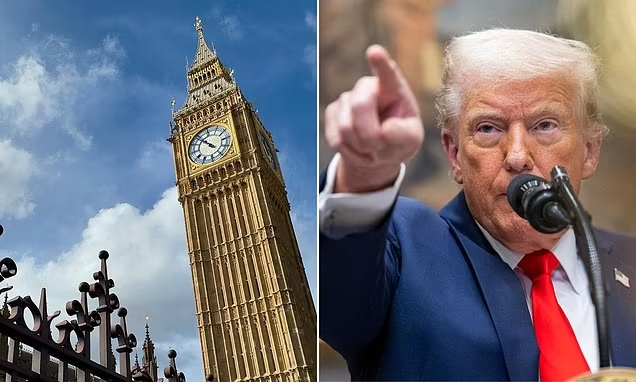In 2024, there was a notable surge in the number of Americans applying for British citizenship, with a record-breaking volume of applications submitted, especially in the final quarter of the year. According to data from the UK’s Home Office, more than 6,100 U.S. citizens applied for UK citizenship in 2024, the highest annual figure since record-keeping began in 2004. This marked an increase from the previous year, when fewer than 5,000 applications were submitted. The most striking aspect of this increase was the dramatic rise in applications during the last three months of 2024, with over 1,700 people applying—an all-time quarterly high for the past two decades.
This surge in applications for British citizenship mirrors a similar spike observed in the first half of 2020, when more than 5,800 Americans renounced their U.S. citizenship, nearly tripling the number from 2019. Analysts at the time attributed the rise in part to the political climate under President Donald Trump and changes in tax policies. Many of those seeking to renounce their U.S. citizenship were long-term residents of the UK, dissatisfied with both the political landscape and the U.S. tax system.

While political dissatisfaction with U.S. governance was a contributing factor for some, taxes played a significant role in others’ decisions. Alistair Bambridge, a partner at Bambridge Accountants, suggested that American citizens living abroad often faced complex and burdensome U.S. tax regulations, prompting them to seek the benefits of renouncing their citizenship in exchange for greater financial freedom abroad.
Interestingly, this recent surge in American interest in British citizenship occurred during the final months of Trump’s re-election campaign, suggesting a possible link between his political leadership and the rising number of Americans looking to the UK as a potential refuge. Trump himself, through his late mother Mary Anne MacLeod, has the option to apply for British citizenship, as she was born and raised in Scotland before emigrating to the U.S. in 1930. This highlights an interesting personal connection between the U.S. president and the UK, even amid rising tensions between the two nations’ political spheres.
This uptick in American applications for UK citizenship also mirrors broader trends in Europe, where British citizens, particularly following Brexit, have sought alternative pathways to preserve their rights to live and work freely in European Union countries. Following the UK’s decision to leave the EU in 2016, the number of British citizens applying for Irish passports—granting them continued access to the EU—almost doubled. This reflected a wider sense of insecurity and a desire for more flexibility in the post-Brexit era, just as many Americans sought security in alternative citizenship options due to dissatisfaction with U.S. domestic and foreign policies.
In conclusion, the significant rise in American applications for British citizenship in 2024 is part of a larger global trend of individuals seeking new avenues for security and opportunity in response to political and economic uncertainties. Whether motivated by political climate, tax regulations, or a desire for greater global mobility, this surge in applications underscores the increasingly complex relationship between national identity, citizenship, and international movement.

In the wake of Donald Trump’s re-election in November 2024, many Americans, particularly those abroad, found themselves anxious about the potential political climate in the coming years. With concerns mounting about the direction of U.S. governance under a second Trump presidency, some communities in Europe have seen an opportunity to capitalize on this growing sense of uncertainty and unease.
One such community is a small village in Italy, which launched a website targeting would-be American expats. The village, located in Sardinia, has long faced depopulation as younger generations have moved away in search of better opportunities elsewhere. Now, in a bid to revitalize the area, the village is offering affordable homes to Americans looking to escape the political tensions in the U.S. and embrace a quieter, more balanced lifestyle in a picturesque European setting.
The website’s tagline speaks directly to Americans who may be disillusioned with the current political landscape: “Are you worned (sic) out by global politics? Looking to embrace a more balanced lifestyle while securing new opportunities?” It then goes on to promote the stunning landscapes and low cost of living in Sardinia, inviting people to “start building your European escape.” The message is clear: for those who are feeling weary of political uncertainty, Sardinia offers a peaceful refuge—a place to begin anew, far from the political storms brewing in the United States.
This initiative speaks to a larger trend of Americans seeking a change in their surroundings, driven in part by political frustration and a desire for a fresh start. The Italian village’s appeal to American expats is not only a response to political dissatisfaction but also an effort to reverse years of economic decline and population loss. Sardinia, with its rugged beauty and slower pace of life, could be an attractive alternative for Americans seeking a respite from the fast-paced, high-stress environment that has become synonymous with modern American life.
As political polarization in the U.S. continues to deepen, such European “escape” offers may become more enticing. The Sardinian village’s strategy of promoting affordable housing to Americans disillusioned by Trump’s re-election exemplifies a new trend where international communities see an opportunity to turn political dissatisfaction into economic revival. For some, the allure of a fresh start in a quiet corner of Europe may be just what they need to escape the divisive political climate at home.




